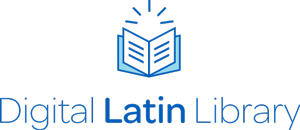About the Library of Digital Latin Texts
The LDLT aims to publish high-quality, critical editions of Latin texts from all eras. Editions are published as TEI XML files encoded according to our guidelines. Those files are stored in a version-controlled repository, and they are openly available under a Creative Commons license.
Central to our philosophy is the idea that interfaces are a form of scholarship entirely different from textual criticism. Textual scholars should not have to master the scholarly fields of human computer interaction and data visualization to publish a digital edition. Rather, the data for critical editions should be openly available for scholars in those fields to use in making arguments about the text from their perspective.
Nevertheless, so that users may read and interact with LDLT texts, we have made a standard interface available on this site. The interface is itself an implementation of CETEIcean, a research project of Hugh Cayless and Raffaele Viglianti. The interface provides a basic navigation menu; an interactive apparatus criticus that allows dynamic swapping of variant readings into and out of the main text; filters for types of variants; and dynamically generated lexical and morphological analysis, courtesy of the Alpheios project.
Scholars interested in submitting a proposal for an edition should contact the appropriate learned society for the era of the text. Each society has developed, or is developing, specific policies and procedures for reviewing submissions:
- SCS Procedures for Evaluation of Proposals and Submissions
- MAA Procedures for Evaluation of Proposals and Submissions
- RSA Call for Editions
For more information about the LDLT, please see https://digitallatin.org/library-digital-latin-texts.
